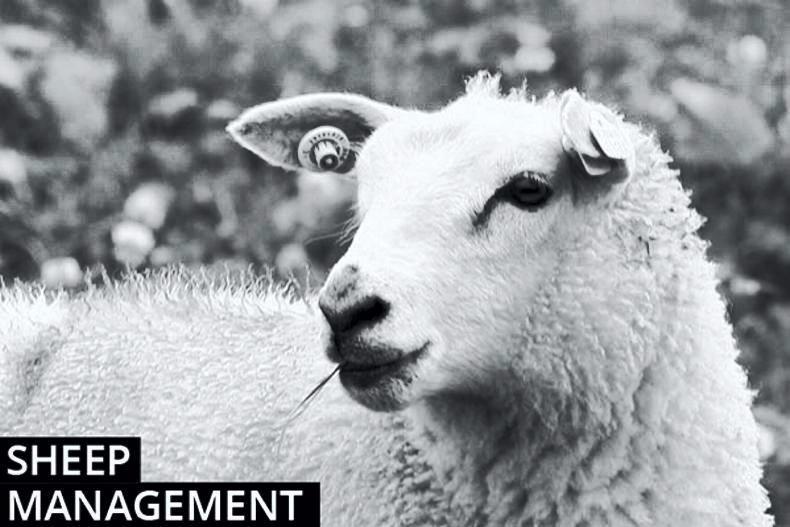It is an understatement to say that last week was a tough week for all flock owners. Heavy rainfall at the end of the week and a significant drop in temperatures led to a deterioration in ground conditions and increased reports of mortality in young lambs and outdoor lambing flocks. The requirement to supplement ewes will unfortunately need to be continued for many, with feeding vital in sustaining ewe milk yield and lamb performance. The nutritional pressure and wet weather is also giving rise to a higher incidence of disease, with more reports of mastitis in ewes and issues such as E.coli scour in young lambs and orf and coccidiosis in older lambs. Ewes which have lost significant body condition and their lambs are most at risk.
Watery mouth
Treatment of E.coli scour or watery mouth involves administering antibiotics daily to treat the infection and electrolytes (and possibly laxatives) to prevent dehydration and provide animals with energy. Stomach tubing may be required where lambs have stopped suckling. Lambs may also require artificial heat via an infra-red lamp. Where there is a known problem on the farm, or an outbreak has developed, antibiotics, such as Spectam, can be given to lambs in the first few hours of life to help prevent disease establishment.
Orf
The incidence of orf is reported as higher in some flocks, which is not surprising given lambs are suckling ewes with wet and dirty udders. As orf is a virus there is no prescribed veterinary treatments. Some farmers will try administering tablets or homeopathic treatments, while where lesions are significant it is useful to administer antibiotic treatment to prevent secondary infections from occurring. Lambs should be segregated and lambs with difficulty suckling may need to be brought indoors or receive artificial feeding. The orf vaccine, Scabivax Forte, will help provide protection to other lambs, but it will take immunity a couple of weeks to develop.
Mastitis
Treatment of all forms of mastitis will include administering antibiotics and possibly anti-inflammatory drugs to deal with pain. If an outbreak occurs then a sample should be taken and sent for laboratory investigation to allow targeted treatment. Depending on the severity, lambs may need to be removed and artificially fed. This week’s sheep feature on page 39 discusses the option of creep-feeding older lambs as a means of reducing the nutritional pressure on ewes and gaining greater utilisation of concentrates. It also details the feeding strategy currently being implemented in the INZAC and research demonstration flocks in Teagasc Athenry. Difficult ground conditions are adding to the challenge. Growth is slowly starting to lift and once ground conditions allow, applying fertiliser will help to get swards back on track.
Industry meeting
Sheep Ireland is holding an industry meeting on 18 April at Teagasc Mellows Campus Athenry at 10.30am. The meeting will give an update on current research, new breeding developments and the effect these changes will have on €uroStar evaluations and the national sheep breeding programme. Reserve a place by calling Sheep Ireland on 023-8820451 or email query@sheep.ie. The deadline for pedigree breeders to submit lambing data is 30 April. Missing this will result in lambs failing to have €uroStar evaluations in 2018.






 This is a subscriber-only article
This is a subscriber-only article










SHARING OPTIONS: